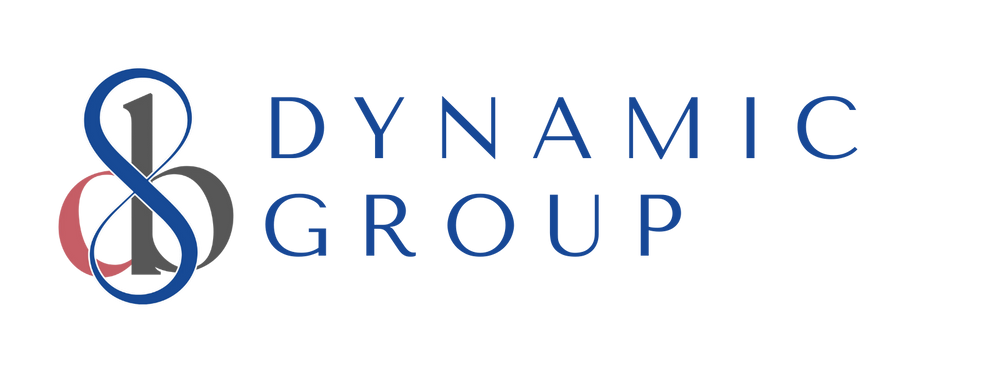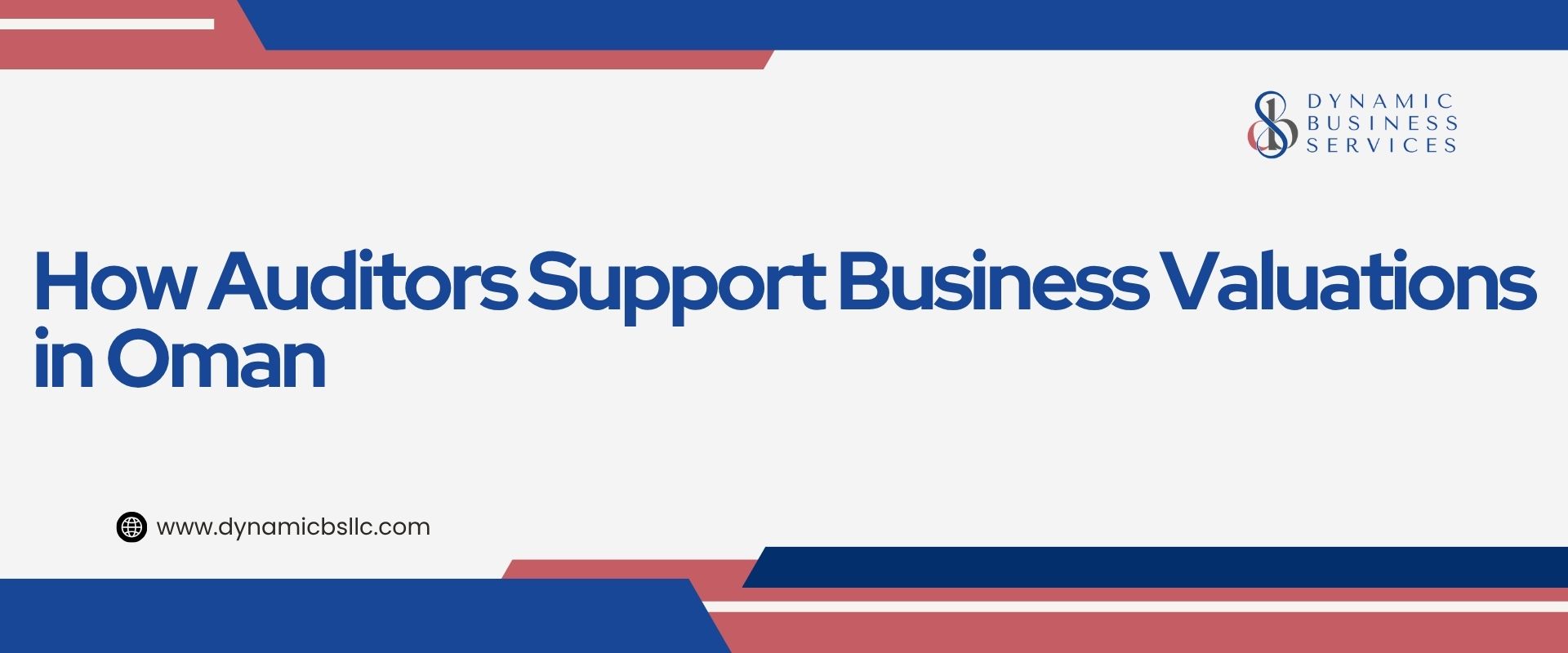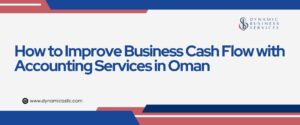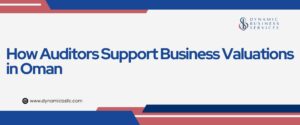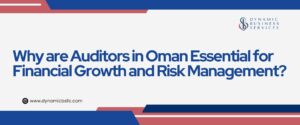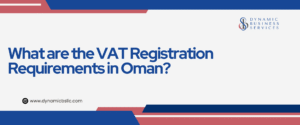The business landscape in Oman has been transforming rapidly. With diversification efforts under Vision 2040 and increasing foreign investment, companies are looking for ways to maximize growth, attract capital, and remain competitive. One of the most important elements in this process is business valuation, and this is where auditors play a vital role.
Valuation is not just about determining how much a company is worth—it is about understanding its financial health, growth potential, risks, and compliance standing. Auditors support business valuations in Oman by providing independent assessments that enhance transparency, investor confidence, and regulatory trust.
Table of Contents
Why Business Valuation Matters in Oman
Business valuation is a cornerstone of corporate decision-making in Oman. From large corporations to family-owned enterprises, valuations influence mergers, acquisitions, investments, and restructuring.
Mergers and Acquisitions in Oman
When two businesses merge or when one acquires another, a valuation ensures fair pricing. Auditors confirm that neither party is undervalued or overvalued, reducing disputes and creating smoother transitions.
Attracting Foreign Investment
Oman has opened its economy to global investors. For investors to trust Omani businesses, they require independent valuation reports prepared by auditors. This transparency makes raising capital much easier.
Regulatory Compliance
Omani authorities sometimes mandate valuations for reporting, taxation, or restructuring purposes. Audited valuations carry legal weight and protect businesses from penalties.
Banking and Financing
Banks often require a professional valuation before granting loans. Auditor-backed reports give financial institutions the confidence to provide credit facilities.
The Role of Auditors in Business Valuations
Auditors are independent professionals who ensure valuations are conducted fairly and accurately. Their role goes beyond compliance—they bring trust and credibility to financial reports.
Independent Verification
Auditors act as neutral third parties. Their independence ensures that valuations are unbiased and trusted by regulators, investors, and financial institutions.
Review of Financial Records
They examine balance sheets, income statements, and cash flow reports to ensure accuracy. This prevents inflated figures or hidden liabilities.
Compliance with Standards
Auditors in Oman follow IFRS (International Financial Reporting Standards) as well as local regulations from the Capital Market Authority (CMA). This dual compliance strengthens credibility.
Risk Assessment
Beyond numbers, auditors also assess operational, financial, and market risks, integrating them into the valuation process for more realistic outcomes.
How Auditors in Oman Facilitate Accurate Valuations
Having trusted Auditors in Oman ensures valuations reflect the true position of a business. Oman’s regulatory bodies demand high standards, and auditors bridge the gap between companies and compliance.
Verification of Assets and Liabilities
Auditors verify tangible and intangible assets while ensuring liabilities are accurately recorded. This prevents manipulation of net worth.
Market Conditions and Trends
They incorporate industry benchmarks and economic conditions, which are critical in Oman, where oil prices and global trade shifts affect business values.
Transparency for Stakeholders
With auditor-backed valuations, stakeholders—including shareholders, lenders, and regulators—gain confidence in reported figures.
Methods Used by Auditors for Business Valuation
Auditors apply globally recognized valuation methods depending on the industry, purpose, and company size.
Income Approach
This method values a business based on projected cash flows. Auditors discount future earnings to their present value, making it suitable for companies with predictable income.
Market Approach
Here, auditors compare the company to similar firms in the market using metrics like P/E ratios. This is effective when there are reliable industry benchmarks in Oman.
Asset-Based Approach
Auditors calculate value by subtracting liabilities from total assets. This approach is commonly used for asset-heavy businesses such as manufacturing or real estate firms in Oman.
Hybrid Methods
In some cases, auditors combine these approaches to provide a balanced and accurate valuation, especially when one method alone is insufficient.
Importance of Independence in Valuation Audits
Auditor independence is what gives valuation reports credibility.
Neutral Perspective
Auditors bring neutrality, ensuring no bias toward buyers, sellers, or management.
Transparency and Trust
An independent valuation builds trust among investors, regulators, and shareholders. It reduces disputes during transactions and ensures everyone has access to accurate information.
Compliance and Legal Assurance
Independent valuations carry more weight with Omani regulators, banks, and courts. They protect businesses from accusations of manipulation.
Challenges in Business Valuations in Oman
Although auditors bring reliability, challenges still exist in Oman’s valuation environment.
Limited Market Data
Many industries in Oman lack detailed public data, making it difficult to compare companies. Auditors overcome this by using regional and global benchmarks.
Economic Volatility
Oil price fluctuations affect multiple sectors in Oman. Auditors factor this into valuations to ensure realistic outcomes.
Subjectivity in Intangibles
Valuing goodwill, brand equity, or intellectual property requires judgment. Auditors apply specialized models to minimize subjectivity.
Regulatory Updates
As Oman strengthens its legal and taxation framework, auditors must continuously adapt valuation methods to comply with updated laws.
How Auditing Services in Oman Strengthen Business Valuations
Professional Auditing Services in Oman ensure that valuations are not only accurate but also aligned with local and international requirements.
Due Diligence for M&A
Auditors conduct thorough due diligence, ensuring acquisition prices reflect true value.
Financial Modeling
They prepare detailed financial models with revenue forecasts, cost structures, and growth assumptions to support valuations.
Regulatory Reporting
Auditors prepare valuation reports required by Omani regulators such as the CMA.
Consultancy Role
Many auditors also act as consultants, advising businesses on how to improve valuation metrics through restructuring or better risk management.
Benefits of Auditor-Supported Valuations in Oman
Auditor-supported valuations provide long-term advantages to businesses in Oman.
Investor Confidence
Independent valuations make it easier for companies to attract both local and foreign investors.
Risk Mitigation
Auditors highlight financial and operational risks, allowing management to resolve them before investors step in.
Strong Negotiation Position
With credible valuation reports, companies can negotiate deals, mergers, and funding agreements with confidence.
Transparency and Compliance
Auditors ensure compliance with both Omani corporate laws and international standards, avoiding penalties and ensuring regulatory trust.
Practical Applications of Valuation Audits in Oman
Valuations supported by auditors serve multiple real-world purposes.
Mergers and Acquisitions
Auditors provide valuations that make deals smoother and reduce pricing disputes.
IPO Preparation
Companies planning to list on the Muscat Stock Exchange (MSX) must have audited valuations for transparency.
Loan Approvals
Banks and financial institutions often rely on auditor-prepared valuations before approving large loans.
Dispute Resolution
In cases of shareholder conflicts, divorces, or inheritance disputes, courts rely on auditor-backed valuations for fairness.
Business Restructuring
Valuations help during liquidation, restructuring, or selling divisions of a company.
The Future of Business Valuations in Oman
With Oman’s economy diversifying, the demand for professional valuations will only increase.
Expanding Taxation
As Oman strengthens taxation policies, valuations will be crucial for transfer pricing and tax compliance.
More IPOs and Listings
Companies going public will require auditor-backed valuations to satisfy investors and regulators.
Attracting FDI
Foreign Direct Investment (FDI) is a priority for Oman. Investors will demand credible, auditor-supported valuations before committing capital.
Family Business Succession
Since many businesses in Oman are family-owned, valuations will be critical in succession planning and inheritance divisions.
Conclusion
Auditors support business valuations in Oman by ensuring accuracy, transparency, and independence. Their role extends beyond compliance, helping businesses negotiate better, attract investors, and comply with regulatory frameworks.
Whether it’s through financial modeling, risk assessment, or regulatory compliance, auditors remain an integral part of Oman’s growing corporate landscape. Their expertise not only enhances valuations but also contributes to long-term business growth and sustainability.
FAQs
What is the position of the auditor regarding valuation?
Auditors act as independent professionals who verify and validate business valuations, ensuring accuracy, neutrality, and compliance with standards.
How do auditors help businesses?
They enhance trust by reviewing financials, identifying risks, ensuring compliance, and providing credible valuation reports for investors and regulators.
What is the purpose of valuation in auditing?
Valuation provides an accurate measurement of business worth, which supports decision-making in investments, mergers, restructuring, or disputes.
How can auditors add value?
Auditors add value by strengthening investor confidence, reducing risks, improving transparency, and guiding businesses with strategic insights based on valuations.
